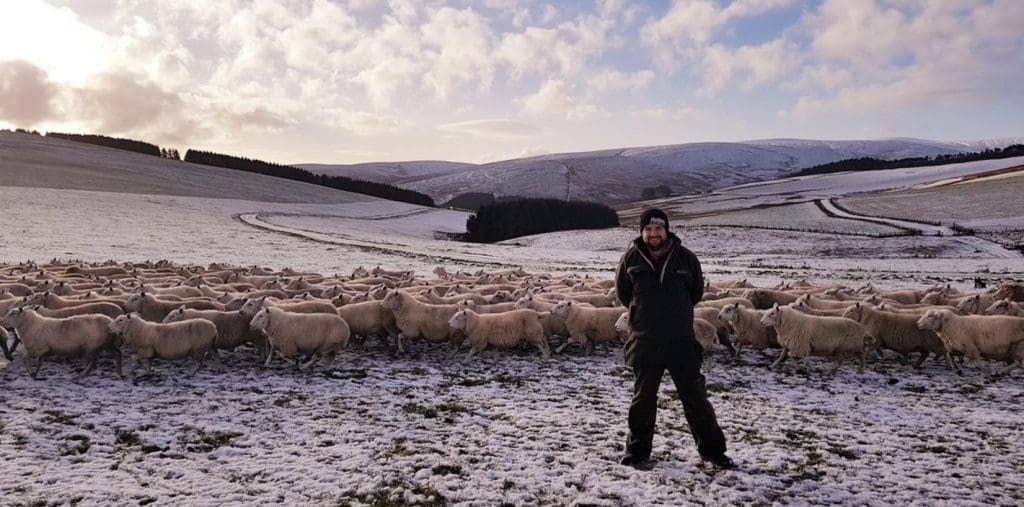GREATER alignment between education and career path development in the sheep industry is necessary to ensure people with a diverse range of knowledge and capabilities are attracted, according to Nuffield scholar Jamie Heinrich.
Jamie believes attracting, developing, and retaining the right young people with a diverse range of skills will help drive Australia’s sheep industry forward and ensure its sustainability.
Jamie travelled across 17 countries investigating global strategies to attract and retain young people in the sheep industry, with the support of Primary Producers SA.
To present a career in the sheep industry and broader agricultural sector as viable path rich in opportunities, Jamie said young people need to be exposed to agriculture early.
“Travelling in Trinidad and Tobago in the Caribbean I met with founder of WhyFarm, Alpha Sennon who is working to create a new and improved image of ‘agri-COOL-ture’ among school children.
“Mr Sennon and his community run the organisation WhyFarm, through which they’ve created an agriculture superhero named AgriMan to get kids excited about learning where their food comes from and engaging them in the basics of farming, resulting in great success,” Jamie said.
“Revitalising the image of agriculture among children, presenting it as a career opportunity alongside firefighters, police officers and doctors, will be pivotal to ensuring a sustainable future workforce.
“Sheep farming can provide fulfilling careers through its positive social, environmental and economic opportunities and should be celebrated and promoted to the next generation this way,” he said.
“It’s not only critical that students are exposed to agriculture during pivotal times in their younger education, but that they are being shown the full spectrum of career prospects available and the diverse benefits and opportunities of a career in Australia’s agricultural sector.”
In his report released last week, Jamie said increasing global demand for sheep is providing a solid platform for the future, but with the changing market conditions is a growing need for a range of skills across various industry positions.
“To meet future food supply targets and ensure the continuum of individuals entering the agricultural workforce, a full spectrum of clear study, career paths and future development opportunities need to be presented to students to show how they can have a fulfilling career in the industry.
“Visiting Hokkaido University, Japan, I met with Dean Atsushi Yokota and Yoko Saito, lecturer in Agricultural Economics, who shared that very few young Japanese farmers go to university,” he said.
“It’s widely believed among older generations in Japan that farmers do not need higher education or technological skills.
“As a result, university courses in Japan don’t typically offer agricultural study paths for non-academic careers which has created a stark impact on the workforce with Japan having one of the oldest agricultural demographics in the world.”
“It’s critical that if we are to meet future workforce and industry challenges, we create greater alignment between education and career path development in the sheep industry to ensure we’re attracting people with a diverse range of knowledge and capabilities.”

Jamie Heinrich inspects sheep on snow during his Nuffield tour.
Jamie said to build capacity and futureproof Australia’s workforce in the sheep industry, it’s imperative that industry better understands and addresses barriers to retention.
“To ensure career longevity and continued development in the sheep industry, workers must be provided with opportunities to further grow and excel whether that be in management, professional development opportunities or through the possibility of land leasing.
“Travelling in Snowdonia, Wales, I was introduced to a graduate-type program at the National Holdings Trust, which offers a one-year management tenure on one of their farms to an aspiring young person in the industry,” he said.
“With mentoring and support from neighbouring properties, this unique opportunity offers experience in the freedoms and responsibilities of management.
“Financial constraints are one of the biggest foreseen barriers for those looking to pursue a career in the sheep industry, particularly those looking to own farming businesses.”
Jamie said it is no longer necessary to own land to be a sheep farmer, and effective retention solutions can be established through leasing, share farming or management positions for example.
“Bridging the gap between generations has also proved successful, and mentoring programs and formal communication on generational farming operations are prime examples of this.”
Jamie said that to secure the future sustainability of Australia’s sheep industry, it’s imperative that more is done to better attract, develop and retain young people into the workforce.
“There are a number of unique factors that act as barriers to attracting and retaining new and developing participants in Australia’s sheep industry.
“To meet future workforce challenges, it is critical that we seek to better understand and address these barriers to present the viability, diversity and opportunities that exist for young people open to exploring a career in the sector.”

This is a timely article and one that must be looked at by the industry.
I ask, does the traditional Merino, that needs mulesing and is fly-prone pose an attractive proposition to a young person entering the workforce?
A progressive Australian Wool Innovation would serve the industry well if they answered that question. As a levy payer I require an answer; however, I am not holding my breath.